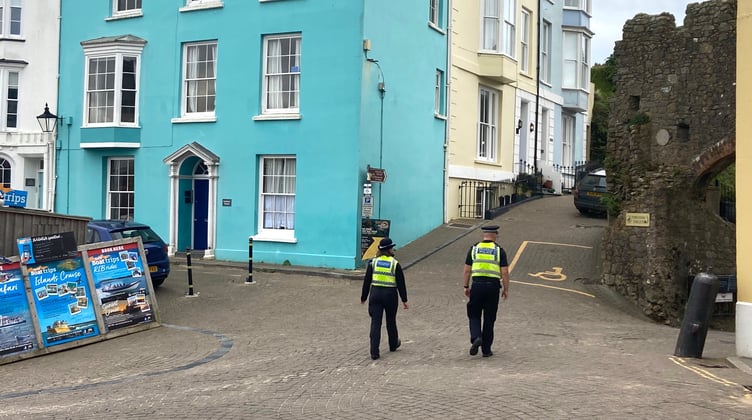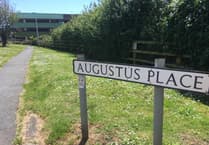Residents across Pembrokeshire, Carmarthenshire, Ceredigion and Powys can expect to see more of their community policing teams as a new strategy that places renewed emphasis on engagement, early intervention, and prevention is launched.
Neighbourhood policing is provided by teams of police community support officers (PCSOs), police constables and special constables who work alongside the community, public services and charities to identify and understand the issues affecting people’s safety, feelings of safety, and quality of life in their local area.
Under the new strategy, Neighbourhood Policing & Prevention Teams will spend more time being visible in their communities, tackling the root causes of problems that cause crime and antisocial behaviour, increase the fear of crime, and erode public confidence in the police.
Chief Constable Dr Richard Lewis said: “Preventing harm is not a new concept to us, or indeed to our partners. We are, however, implementing a new and enhanced approach with increased focus on prevention with the aim of reducing victim and offence levels, and lowering demand on policing.
“As demand for policing services continues to rise, so does the need to find sustainable, system-wide solutions across public services – and Neighbourhood Policing & Prevention Teams play a vital role in this, working with partners every day to unpick complex issues and provide support that otherwise would not be possible.”
Of the more than 140,000 incidents Dyfed-Powys Police recorded in the 12-months ending July 2024i, anti-social behaviour accounted for almost 2 per cent (2,705 recorded incidents) - the equivalent of more than seven incidents every day.
In the same period, Dyfed-Powys Police recorded 33,553 crimes, of which 4,391 were thefts; 3,452 were criminal damage; and 1,963 were incidences of shoplifting – offences which are most often dealt with by neighbourhood policing teams – making up almost 30 per cent of all crimes recorded.
Dr Lewis continued: “While neighbourhood policing teams have always helped to prevent crime from happening through problem solving approaches, their remit over time has grown much wider.
“Under this new approach, we are re-focusing our efforts on important prevention, problem solving and early intervention work that stops problems like anti-social behaviour developing into crime.
“Equally important is the strong links they build with our communities, which means they are best placed to gather intelligence on a range of issues.
“These strong links with local residents, partners, and businesses help inform our response to local issues and makes a real difference in communities.”





Comments
This article has no comments yet. Be the first to leave a comment.